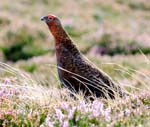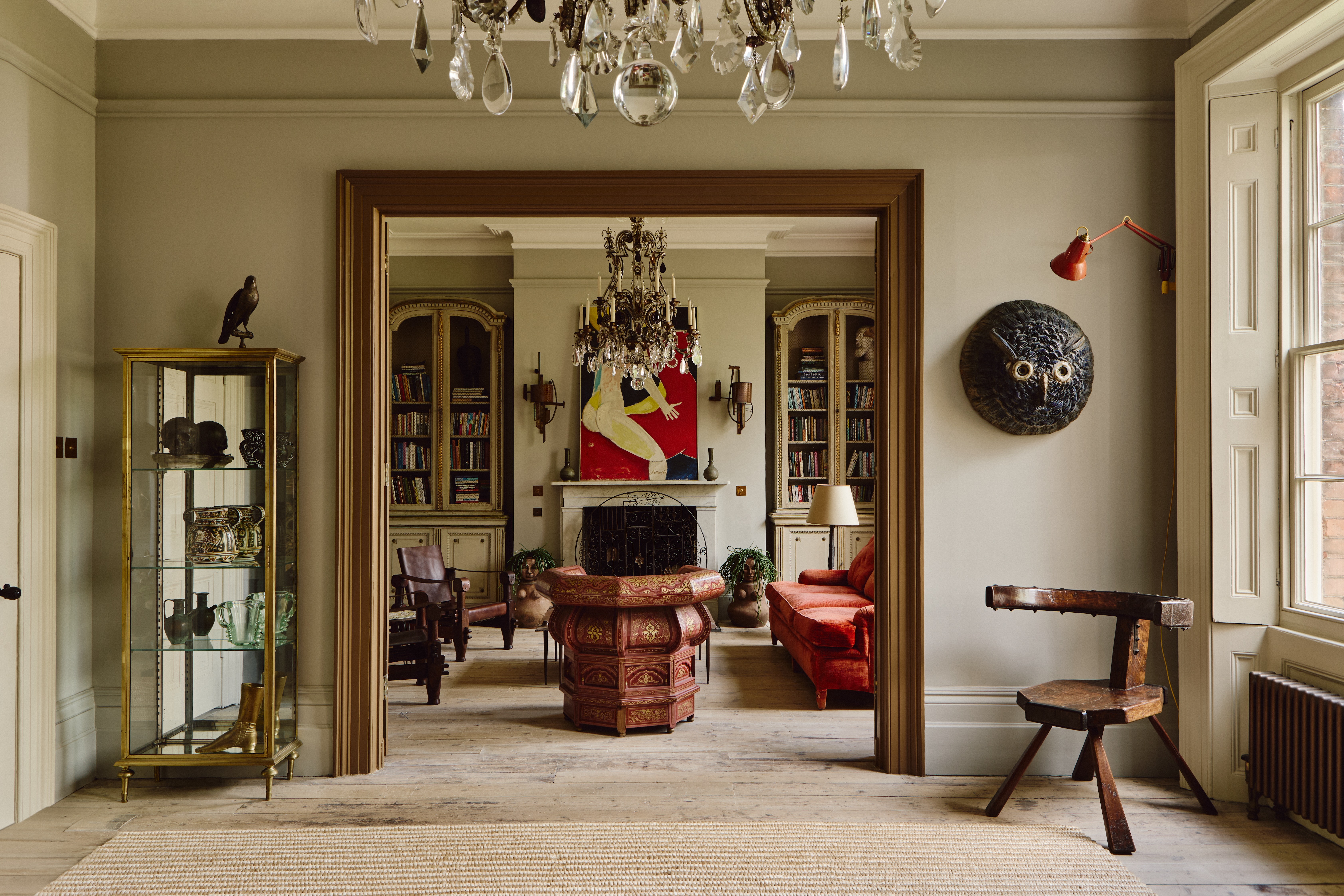Is shooting the new golf?
Shooting syndicates have enormous appeal and places are incredibly sought-after. Ian Valentine finds out where the appeal comes from


If you're looking to join a shooting syndicate, then the extraordinary, grisly truth is that you're better off looking in the obituaries than the classifieds. Fortunate members who secure affordable shooting, with people they like and trust, in scenery they hold dear, won't give it up until Father Time blows his horn.
I know of one syndicate in particular that embodies all the qualities one could ask for in a syndicate day. Sudeley Lodge, Gloucestershire, is a beautiful high-bird shooting and farming estate bought in 1965 by the late Kenneth Wilson, and now immaculately run by his sons, Jim and Roger. The members are locals, friends and relations, whose children have grown up and learnt to shoot together. Legendary elevenses, lunches and teas emerge from the kitchen of the Georgian Cotswold-stone house, and syndicate parties are held in the barn. Susie, Jim's wife, heads up the kitchen team with help from her sister-in-law Rosemary, producing sloe gin, sherry-laced soups and the best Scotch eggs you have ever tasted-always cooked as the guns appear, so they're still hot. Susie also picks-up with her terriers Truffle and Crumble, shoot captains of the canine contingent (Country Life cover, October 7, 2009). Susie's advice to anyone thinking of hosting a syndicate day is that it's very enjoyable, but hard work, and that the team behind the scenes is very important. ‘I love the camaraderie with the beaters-we sometimes have three generations out on the same day-and everyone is part of the extended Sudeley family. Relaxing in the bath after a day of fresh air and sport is magical, but then there are the pheasant sausages to be made. Everything is either sold or eaten, nothing is ever wasted.'
Jim manages the delicate balance between host and shoot manager with grace. His main priorities are the safety and enjoyment of the guns and their respect of the land he loves and its resident wildlife.‘My father bought the farm because he could see the potential long before high-bird shooting was popular. What he loved was the sport, of course, but also the engagement of all in a common pursuit. The tricky bit, frankly, is the guns-after an early disaster, I now have a rule that I won't have anyone on the syndicate I wouldn't have to dinner. The Sudeley valley is a magical place and, over the past 20 years, we have seen a gradual return of numerous animal and bird species. I am quite convinced that the management of the land for shooting has been a significant contributor to this, so we have the best of both worlds here'. Richard Seaman, a partner for the specialist chartered surveyor and estate agent George Goldsmith in Edinburgh has noticed a marked increase in the number of estates that invite in syndicates, rather than sell all their days individually.
* Subscribe to Country Life and save £1 per issue
‘Since 2008, the partial withdrawal of the corporate sector has forced their hand. Of course, this has also resulted in some wonderful new opportunities for teams.' He highly recommends that a new or existing syndicate ensures the lease terms are clearly set out on paper. ‘Although nobody likes to mention it at the time, a good many shooters are not in their first flush of youth,' he says. ‘So if someone does drop off their perch unexpectedly, or the syndicate is forced to disband for any reason, then it's best to have an action plan in place. When a syndicate moves on, one might expect a bidding war to ensue-after all, this could be the opportunity of a lifetime- but such golden openings rarely make it to the open market. ‘There's nearly always a private, recommended contact or friend on standby, so the lease transfers silently. Occasionally, as agents, we are asked if we know anyone suitable and trustworthy- landowners will exhaust every avenue before advertising in the press.' John Ward, director of Ray Ward, believes there are several advantages to joining a successful syndicate. ‘Apart from the companionship and camaraderie from getting to know the other guns and shooting regularly with a group, you also become familiar with the shoot and the drives,' he explains. ‘This allows you to understand the way the birds behave and, therefore, pick and choose your quarry more effectively.' For peace of mind, the syndicate approach pays dividends. ‘When buying sold days, it is often luck of the draw as to whether the day is good or not, whereas, with a syndicate, you know you'll be there the next week if there is an off day.'
That sentiment chimes as tunefully with the shoot manager. David Pick runs a high-bird affair in the Cotswolds, shot by a well-set syndicate. ‘Apart from the security, running the days is so much more relaxed, because we all know the bag will even itself out over the season. On a commercial, one-off day, the keeper is under extreme pressure to ensure the right number of birds is presented, no matter the weather or unfavourable winds.'
The syndicate is made up of local souls, who all live within 10 minutes of the shoot. ‘Each gets their own day to host,' he adds. ‘They can invite extra guests, throw the dinner afterwards, and generally play lord of the manor. To all extents and purposes, it's their shoot for the day.' Of course, you don't have to stay in the same place to be a successful syndicate. For many teams, familiarity breeds contempt. Landscape designer Peter Lock is manager of a roving syndicate called the Pheasant Pluckers. Each year, he sources two consecutive days at a different venue. The first ‘warm-up' day is a rough affair, whether wildfowling, woodcock or walked up. The main event is usually a 100-120 bird day, depending on how far the budget will stretch.
Sign up for the Country Life Newsletter
Exquisite houses, the beauty of Nature, and how to get the most from your life, straight to your inbox.
‘This year, we had a brilliant day at the Dunglass estate near Berwick. If we ever broke our golden rule of never going back, then I would in a flash. Our other golden rule is to choose places on word-of-mouth recommendation. I once booked a shoot via the internet and it was a disaster.' Peter's friends pay a sub every month to keep expenditure manageable. ‘Prices have remained constant for the past six years, because we book early and agree to pay 50% up front. I'd rather the shoot benefits from the cash than it sits in a bank account making precious little.'
The Highland estate is making a resurgence among sporting syndicates. ‘We get a lot of clients who see it as the perfect staycation,' said Richard. ‘In round figures, it is about £1,000 a head per week for lodge, stalking, shooting, fishing and a cook, and you get a whole chunk of Scotland to yourself. If you went on a beach holiday abroad, would you come away with much more in your wallet?' So there are plenty of options for those whose local shoot looks like a closed shop. And if you're on the inside of a cosy syndicate, don't be surprised if friends keep asking after your health. It really does matter to them.
* Follow Country Life Magazine on Twitter
Country Life is unlike any other magazine: the only glossy weekly on the newsstand and the only magazine that has been guest-edited by HRH The King not once, but twice. It is a celebration of modern rural life and all its diverse joys and pleasures — that was first published in Queen Victoria's Diamond Jubilee year. Our eclectic mixture of witty and informative content — from the most up-to-date property news and commentary and a coveted glimpse inside some of the UK's best houses and gardens, to gardening, the arts and interior design, written by experts in their field — still cannot be found in print or online, anywhere else.
-
 ‘It had the air of an ex-rental, and that’s putting it politely’: How an antique dealer transformed a run-down Georgian house in Chatham Dockyards
‘It had the air of an ex-rental, and that’s putting it politely’: How an antique dealer transformed a run-down Georgian house in Chatham DockyardsAn antique dealer with an eye for colour has rescued an 18th-century house from years of neglect with the help of the team at Mylands.
By Arabella Youens
-
 You're having a giraffe: Country Life Quiz of the Day, April 25, 2025
You're having a giraffe: Country Life Quiz of the Day, April 25, 2025Friday's Quiz of the Day brings your opera, marathons and a Spanish landmark.
By Toby Keel